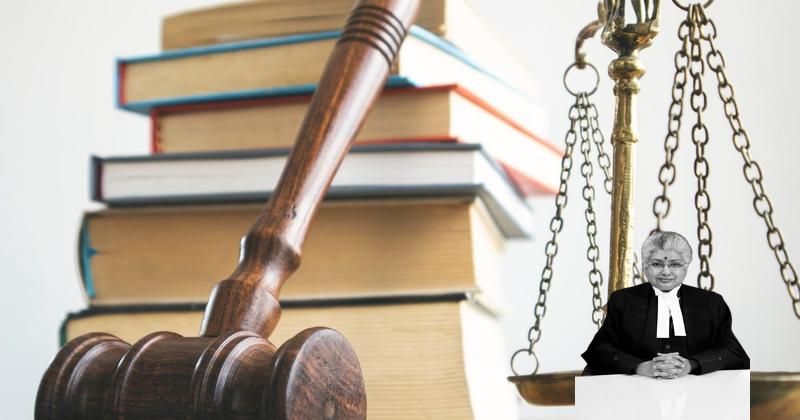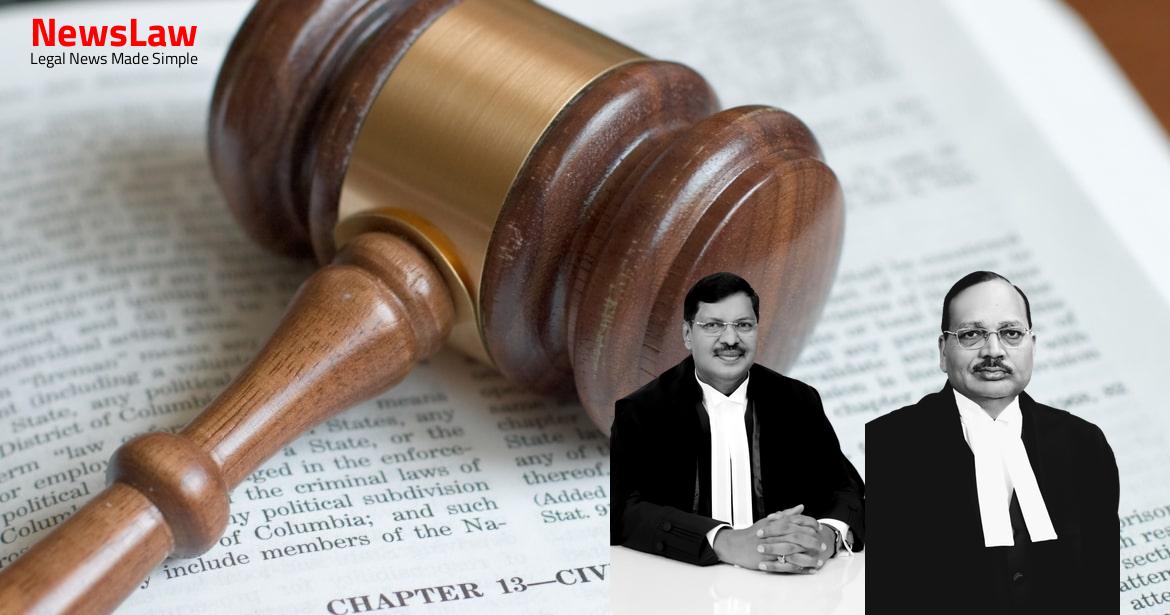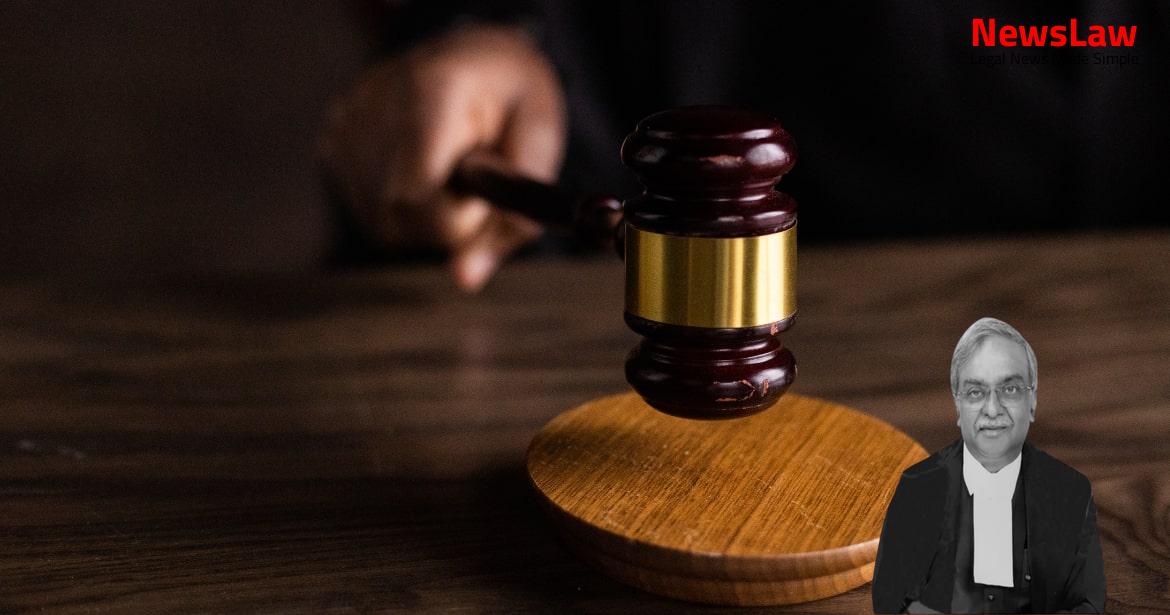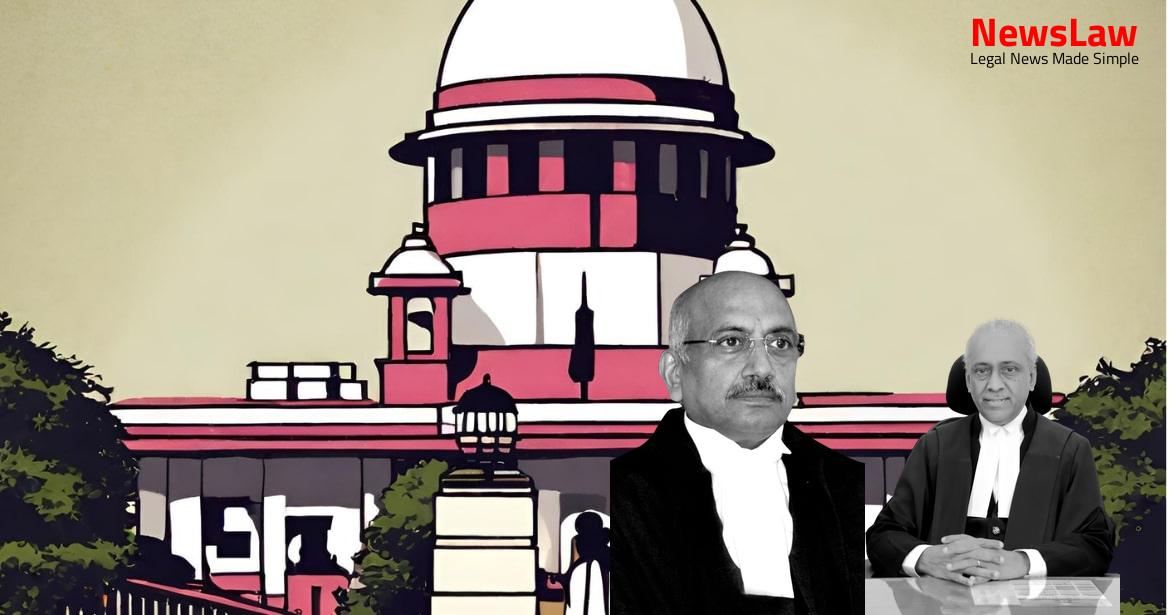Following many reminders by the respondent regarding the non payment of the final bill, according to the respondent, it sent a list of additional claims on 25.02.2003 and in the said letter, claimed that the letter and the Final bill should be considered as under protest. Thereafter, respondent on 14.11.2003 revoked the affidavit and undertaking on account of non payment of the bill and purported to give the final notice invoking the arbitration clause contained in the contract for the non payment of claims due. The petition filed by the appellant under Section 34 of the Act came to be allowed by the District Judge. It is this order passed by the District Judge under Section 34 which stands overturned by the impugned order in an appeal under 4 Section 37 of the Act. In the terms of the contract which are apposite in the context of the dispute before us, there is a prohibition against the Contractor supplementing the 5 claims in the final bill by including claims which are not found in the final bill. Master Construction Company (2011) 12 SCC 349 and the judgment in Union of India v. – The Final Bill shall be submitted by the Contractor on I.A.F.W.2262 in duplicate, accompanied by all supporting abstracts, vouchers, etc., except I.A.F.W.- 2158 and 1833 prepared in the manner prescribed by the G.E. The Contractor shall be entitled to be paid the full measured value of the Works Order, less the value of payments made on account and of any charges properly preferred under the Conditions of Contracts for Government Stores, etc. On the one hand, it is sought to be rebuffed by the case of the contractor that the accord and satisfaction was brought about by vitiating factors which are 9 contemplated essentially in sections 15 to 18 of the Indian Contract Act, 1872. It may be open to the Arbitrator to find merit in the complaint of the contractor and to reject the case of accord and satisfaction and to proceed to examine the merits of the claim of the contractor and to award compensation in accordance with law in a given case. It is not the case of the appellant that while accepting the final bill, the respondent had unequivocally stated that he would not raise any further claim. Boghara Polyfab Private Limited (2009) 1 SCC 267 went on to hold as follows: “23. The rival contentions give rise to the following question for our consideration: In what circumstances, a court will refuse to refer a dispute relating to quantum to arbitration, when the contract specifically provides for reference of disputes and differences relating to the quantum to arbitration? Kar [(1974) 1 SCC 141] and Indian Drugs & Pharmaceuticals Ltd. [(1974) 1 SCC 141] this Court observed : (SCC p.
It takes two to end it, and hence it follows that as the contract subsists for the determination of the rights and obligations of the parties, the arbitration clause also survives. Competence of Arbitral Tribunal to rule on its jurisdiction.—(1) The Arbitral Tribunal may rule on its own jurisdiction, including ruling on any objections with respect to the existence or validity of the arbitration agreement, and for that purpose,— ( a ) an arbitration clause which forms part of a contract shall be treated as an agreement independent of the other terms of the contract; and ( b ) a decision by the Arbitral Tribunal that the contract is null and void shall not entail ipso jure the invalidity of the arbitration clause.” Where the intervention of the court is sought for appointment of an Arbitral Tribunal under Section 11, the duty of the Chief Justice or his designate is defined in SBP & Co. [(2005) 8 SCC 618] This Court identified and segregated the preliminary issues that may arise for consideration in an application under Section 11 of the Act into three categories, that is, ( i ) issues which the Chief Justice or his designate is bound to decide; ( ii ) issues which he can also decide, that is, issues which he may choose to decide; and ( iii ) issues which should be left to the Arbitral Tribunal to decide.
The issues (third category) which the Chief Justice/his designate should leave exclusively to the Arbitral Tribunal are: ( i )
Whether a claim made falls within the arbitration clause (as for example, a matter which is reserved for final decision of a departmental authority and excepted or excluded from arbitration). If the date of execution of the receipt is mentioned in the receipt and the payment is released long thereafter, the receipt acknowledging the amount as having been received on a much earlier date will be absurd and meaningless.
But what is of some concern is the routine insistence by some government departments, statutory corporations and government companies for issue of undated “no-dues certificates” or “full and final settlements vouchers” acknowledging receipt of a sum which is smaller than the claim in full and final settlement of all claims, as a condition precedent for releasing even the admitted dues. On the other hand, if it found that the discharge voucher had been obtained by fraud/undue influence/coercion, it will ignore the same, examine whether the plaintiff had made out the claim on merits and decide the matter accordingly. If the final bill was presented on 13.2.2002, and payment of the same was made belatedly on 25.11.2003 to the pecuniary disadvantage of the Contractor, then it would appear not to lie in the mouth of the Engineer-in-Charge/employer to invoke an exclusionary clause as is found embedded in Clause 65-A. This principle is that the Courts will not enforce and will, when called upon to do so, strike down an unfair and unreasonable contract, or an unfair and unreasonable clause in a contract entered into between parties who are not equal in bargaining power. In today’s complex world of giant corporations with their vast infrastructural organisations and with the State through its instrumentalities and agencies entering into almost every branch of industry and commerce, there can be myriad situations which result in unfair and unreasonable bargains between parties possessing wholly disproportionate and unequal bargaining power. Contracts in prescribed or standard forms or which embody a set of rules as part of the contract are entered into by the party with superior bargaining power with a large number of persons who have far less bargaining power or no bargaining power at all. Such a contract or such a clause in a contract ought, therefore, to be adjudged void under section 23 of the Indian Contract Act, as opposed to public policy,” And still further; “The Indian Contract Act does not define 22 the expression “public policy” or “opposed to public policy”. If there is no head of public policy which covers a case, then the court must in consonance with public conscience and in keeping with public good and public interest declares such practice to be opposed to public policy. Lacking precedent, the Court can always be guided by that light and the principles underlying the Fundamental Rights and the Directive Principles enshrined in our Constitution.” It is not the case that the payment of the final bill was made promptly and delay in payment alone should constitute a separate ground for submission of the bills by the Contractor on closer scrutiny of his claims to make fresh claims which may have escaped contractor’s notice at the time of presentation of the final bill. Manohar Lall, learned counsel appearing for the appellant points out that the Arbitrator in the present case was appointed under Section 11 of the Act by the Chief Justice of this Court exercising jurisdiction under the Act by order dated 12.11.2007 after recognizing and identifying the dispute and difference which had arisen between the parties that demanded resolution through arbitration process in terms of the arbitration clause signed by the parties.
that dispute still exists between the parties, which is evident from the recitals in the agreement, which reads as follows: “The new arbitrator shall decide all the disputes between the parties” The award ought not to have been tinkered with by the Learned District Judge, Chandigarh for the reason that jurisdiction stood denuded by operation of the offending part of Clause 65 and 65-A cannot be read as waiver or extinguishment of right of a contractor, much less by deeming fiction as Clause 65-A does, to lay further claims after the presentation of the final bill if money or interest is demonstrably owed by the offer or of the contract to the contractor. 18) There may be cases where a final bill may be submitted and the contention is taken that the final bill was submitted under duress. It is a year thereafter on 25.02.2003, that the respondent sent a letter inter alia urging 27 that the final bill dated 13.02.2002 was not paid and is signed under protest.
The Arbitrator has proceeded to reject the application filed by the appellants under Section 16 on the basis of the order dated 12.11.2007 passed by the High Court.
Section 37 of the Act reads as follows: “37.Appealable orders.—(1) An appeal shall lie from the following orders (and from no others) to the Court authorised by law to hear appeals from original decrees of the Court passing the order, namely:— (a) refusing to refer the parties to arbitration under section 8; (b) granting or refusing to grant any measure under section 9; (c) setting aside or refusing to set aside an arbitral award under section 34.] (2) Appeal shall also lie to a court from an order of the arbitral tribunal— (a) accepting the plea referred to in sub-section (2) or sub-section (3) of section 16; or (b) granting or refusing to grant an interim measure under section 17. In this case, by order dated 04.03.2009, the Arbitral Tribunal has not allowed the plea be it under section 16(2) or under Section 16(3). We may notice that the High Court, in the impugned order, while dealing with the plea under clauses in question has, inter alia, held as follows: “The contract terms and conditions require submission of the final bill within three months of physical completion of the works to the satisfaction of the Engineer-in-Charge. If the final bill was presented on 13.02.2002, and payment of the same was made belatedly on 25.11.2003 to the pecuniary disadvantage of the Contractor, then it would appear not the lie in the mouth of the Engineer-in-Charge/employer to invoke an exclusionary clause as is found embedded in Clause 65-A. vs Brojo Nath Ganguly & A1R1986 SC 1571, thus expanding the sphere of the law of contracts and subjecting it to the test of 32 reasonableness or fairness of a clause in a contract where there is inequality of bargaining power.”
24)
Also Read: https://newslaw.in/case-type/criminal/dereliction-of-duty-and-grave-lapses-a-legal-analysis/
It is thereafter that the High Court has referred to the judgment of this Court in Central Inland Water Transport Corporation & Anr.
26) If the clauses operate, the inevitable result is the arbitrator could not have traveled outside of the contractual prohibition and passed an award allowing claims which were submitted after the submission of the final bill. 28)
Case Title: UNION OF INDIA Vs. M/S. BHARAT ENTERPRISE (2023 INSC 277)
Case Number: C.A. No.-003441-003442 / 2015



